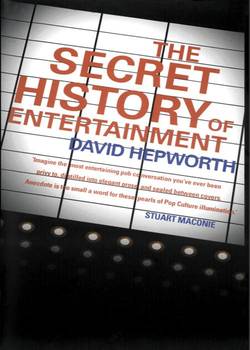Читать книгу The Secret History of Entertainment - David Hepworth, David Hepworth - Страница 20
BROWN M&MS AND OTHER ROCK STARS’ RIDERS
Оглавление‘There shall be no brown M&Ms in the backstage area, upon pain of forfeiture of the shows with full compensation’ was the line that Van Halen had inserted into their agreement with promoters of their live shows in the 1980s. This wasn’t there because the band had particular confectionery preferences so much as to provide them with a stick with which to beat promoters who failed to provide more important things like satisfactory access to a venue or adequate power supply.
But since those simple days the supplies and services stipulated in contract ‘riders’ tell their own story of the increasing cynicism of the music business and the Napoleonic delusions of some of its bigger names. The following examples were culled from the excellent Smoking Gun website (www.thesmokinggun.com) and come from actual contracts.
Luciano Pavarotti’s contract stipulates ‘there must be no distinct smells anywhere near the Artist’.
Whitney Houston’s need for accommodation knows no bounds. ‘We need all available rooms in the building,’ says her rider.
Christina Aguilera will brook no impediment between her and her adoring public, which is why she demands a ‘police escort to facilitate band’s arrival at venue’ and warns that ‘under no circumstances are vehicles to encounter any delay due to traffic’.
Barry Manilow, uniquely, can call upon his legions of faithful admirers no matter where he may be booked, and his contract simply informs the promoter that ‘Barry’s fan club shows up at 11.00 am to decorate his dressing room’.
Elton John is clearly no stranger to the ‘do you know who I am?’ gambit, which is why the contract warns darkly that the star ‘will not wear his pass once he has arrived backstage’.
Cher needs a room just for her wigs.
Years touring the heartland gave Johnny Cash an unrivalled instinct for what works, which is why he demanded ‘an American flag is required in full view of the audience throughout the show’.
There are certain things that not even the biggest show can afford to carry around, which is why Michael Bolton expects the promoter to provide ‘the services of the best African/American or ethnic/mixed gospel choir in your market’.
Like a true Brit, Joe Cocker feels that the whole event should be built around drinking. His contract is most specific about the proper temperature: ‘Beer to be iced at 6 pm, re-iced at 8pm and again at 10.45 (“With A Little Help From My Friends”)’.
Busta Rhymes could just be showing off when he asks for ‘one box of Rough Rider condoms (ribbed)’, but it’s best not to ask.
Foo Fighters are known as a group with a sense of humour and a due sense of their place in the scheme of things. Hence they quietly assert that they ‘shall not be required to share a dressing room with any other performer, except Supergrass, Oasis or maybe Led Zeppelin’.
BB King will be on the bus and halfway out of town by the time the crowd have got to their feet to applaud, which is why under ‘After-show food and beverages’ he ticks the box marked ‘nothing’.
Ever since the 1960s James Brown has sought to foster the illusion that his act puts such a strain on him that his health is in danger whenever he is on stage. The promoters are warned: ‘There must be an oxygen tank and mask on stage at all times’.
Finally, Chuck Berry never encumbers himself with such frills as a band. He expects the promoter to be ready with ‘three musicians including drummer with set of drums, one pianist with piano and one bass player and bass’.
